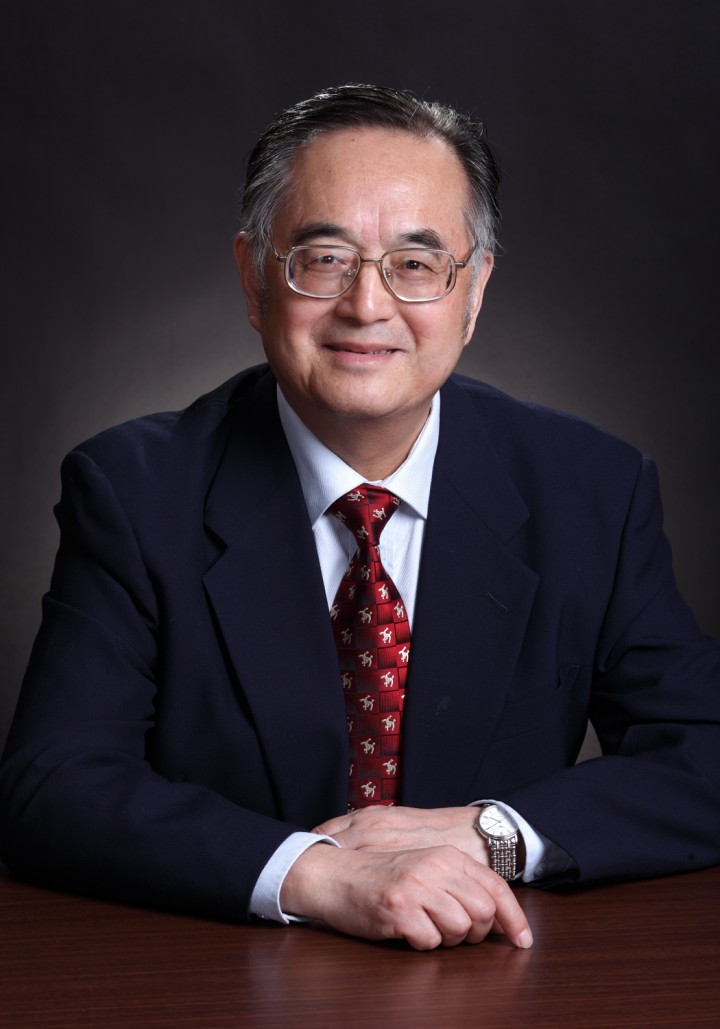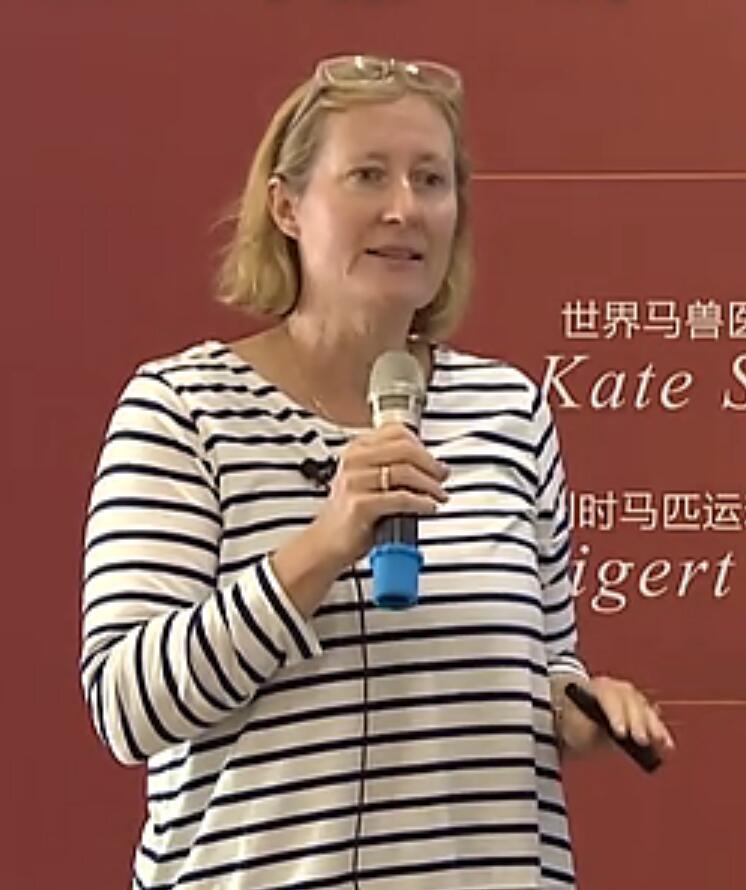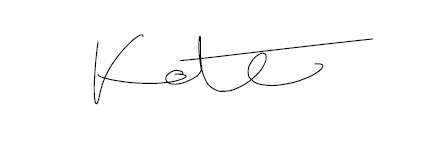Overview
Welcome Message

Dear Honored Guests and Fellow Veterinarians:
Hello everyone. The 15th World Equine Veterinary Association (WEVA) Congress will be taking place in Beijing in 2018. As the president of the 15th WEVA Congress, and the president of the China Horse Industry Association, I wish to express my sincere welcome to all guests coming from afar, and pay high tribute to fellow veterinarians who have long been paying attention and concern to equine health and welfare. The history of Chinese equine medicine dates back 2000 years. The world's best preserved traditional Chinese equine veterinary work – Simuanji was compiled by Li Shi of Tang Dynasty in 833 A.D.
In the following centuries, horses played important roles in China’s development of production and living, society and culture, military and war. The equine veterinary industry moved hand in hand with the development of the horse industry in China.
After the founding of People’s Republic of China, the number of horses in China at one stage exceeded 11 million, giving it the highest horse population in the world. As horses gradually lost their working functions, the number of horses reduced to 6 million, and the development and education of equine veterinary medicine was laid aside. Traditional equine veterinary medicine failed to put enough energy to its inheritance and development, whilst the development of modern equine veterinary medicine had fallen behind development of global equine veterinary science.
In recent years, with the steady growth of China’s economy and constant boosting of comprehensive national strength, the equine industry and horse culture has been reformed and redeveloped.
On the 12th May 2014, at the “International Akhal-Teke Horses Association Special Conference & China Horse Culture Festival”, President Xi Jinping highlighted that the horses had been playing an important role in Chinese culture, and horse culture has a long story to tell.
Henceforward the horse industry of China has entered a new era of rapid transformation and development, from the traditional stockbreeding to urban leisure, sports, performance, cultural exchanges and other wider applications. The quantity of high end and mid-range horses is increasing and the quality of horses is improving as well. Whilst more events, activities and shows that are related to horses, are injecting new vigor and vitality to the development of the industry, new requirements and challenges are brought to the modern equine veterinary profession. Unfortunately China’s equine veterinary medicine is still behind world standard; the number of veterinary professionals is inadequate; research and education is behind international practice; and there is a deficiency of medical facilities, medications and vaccinations, which has impeded the rapid growth of China’s equine industry.
In recent years, the relevant departments have put continuous efforts into cultivating equine veterinary talents. Colleges and universities have opened horse related courses. Equine veterinary medicine has become one of the key programs in the practicing veterinary DVM project set up by the China Scholarship Council and Kansas University of the United States. China Horse Industry Association has been collaborating with multiple domestic research institutes, Hong Kong Jockey Club Equine Hospital and other organizations in selecting and training outstanding equine veterinary talents and veterinary competitions.
China has made some progress in recent years. However, there is still a big disparity with international standards. The congress to be held in Beijing will provide participants not only the latest and most up-to-date veterinary technique, but also the most practical and effective methods of diagnosis and treatment. The congress will also arouse the public’s awareness of equine veterinarians’ significant role in the industry’s development and promote veterinarians’ social status and influence in the industry.
The World Equine Veterinary Association Congress is an international congress held biennially and is the world’s most authoritative professional equine veterinary conference. Next year’s conference will be co-hosted by the World Equine Veterinary Association (WEVA) and China Horse Industry Association. The Theme of the conference is “Breeding, Caring, Loving”. There will be two main sections in the congress namely professional seminar and industry related, and three parallel sub-sections introducing both the state-of-art equine veterinary professional knowledge and fundamental trainings for horse industry practitioners.
As the overall planning, supervising and facilitating organization of China’s horse industry, China Horse Industry Association makes its mission to “develop the horse industry & promote the horse culture”, and drive China’s horse industry to develop in a healthy and orderly way. We have established partnership with horse industry organizations of various countries. Through hosting this congress, China Horse Industry Association will set up its Equine Veterinarian Branch and join the big family of the World Equine Veterinary Association.
Through its own effort, the support and help of fellow practitioners all over the world, China Horse Industry Association devotes itself to learning and communicating, bridging the gap and improving the proficiency of Chinese practicing veterinarians. We believe that it is worth expecting the surprise to be brought to the world by China Horse Industry Association.
Last but not least, I sincerely wish every participant will have fruitful gains in this congress, and enjoy your stay in Beijing in the beautiful spring!


Message from WEVA president, Dr. CJ (Kate) Savage
As president of World Equine Veterinary Association (WEVA) and on behalf of the WEVA board, I am honored to announce that the People's Republic of China (PRC) has won the bid to host the 15th congress of the World Equine Veterinary Association.
After a wonderful and successful congress in Guadalajara, Mexico in 2015, the board has decided to bring the next WEVA congress to Beijing, China, and is proud to work with the China Horse Industry Association (CHIA). We thank Professor Jia for his hospitality and knowledge, as we take a huge step forward and collaborate to ensure equine veterinarians, in China and from all over the world, are stimulated by the excellent continuing education forthcoming. This congress will be an unforgettable opportunity demonstrating how veterinarians promote a vigorous equine industry and the health and welfare of horses. The success and longevity of all of the equestrian and equine working industries depend on knowledgeable, practical and well-equipped veterinarians.
I am proud of the comprehensive array of speakers and practical laboratories (“wet- labs”) that will be presented in Beijing at this 15th WEVA congress, and wish to thank Dr. Chris Riggs and Dr. Henry Tremaine, as co-programme chairs, for their tireless pursuit of excellence.
Information regarding the scientific programme and oral and poster abstract presentations will be shared on the WEVA (WEVAonline.org) and CHIA websites very soon. There will also be opportunities for companies to exhibit their products (CHIA is in charge of the Trade Exhibit Hall).
Beijing is an amazing city and there will be numerous opportunities to visit some of the cultural centres. An exciting social program will accompany the scientific program and allows for maximal collegial interaction. Our gathering of international equine veterinarians is unique and is an amazing opportunity for us to meet and talk with each other. !
I look forward to seeing you all in Beijing.
Best Wishes,
 Dr. CJ (Kate)
Dr. CJ (Kate)